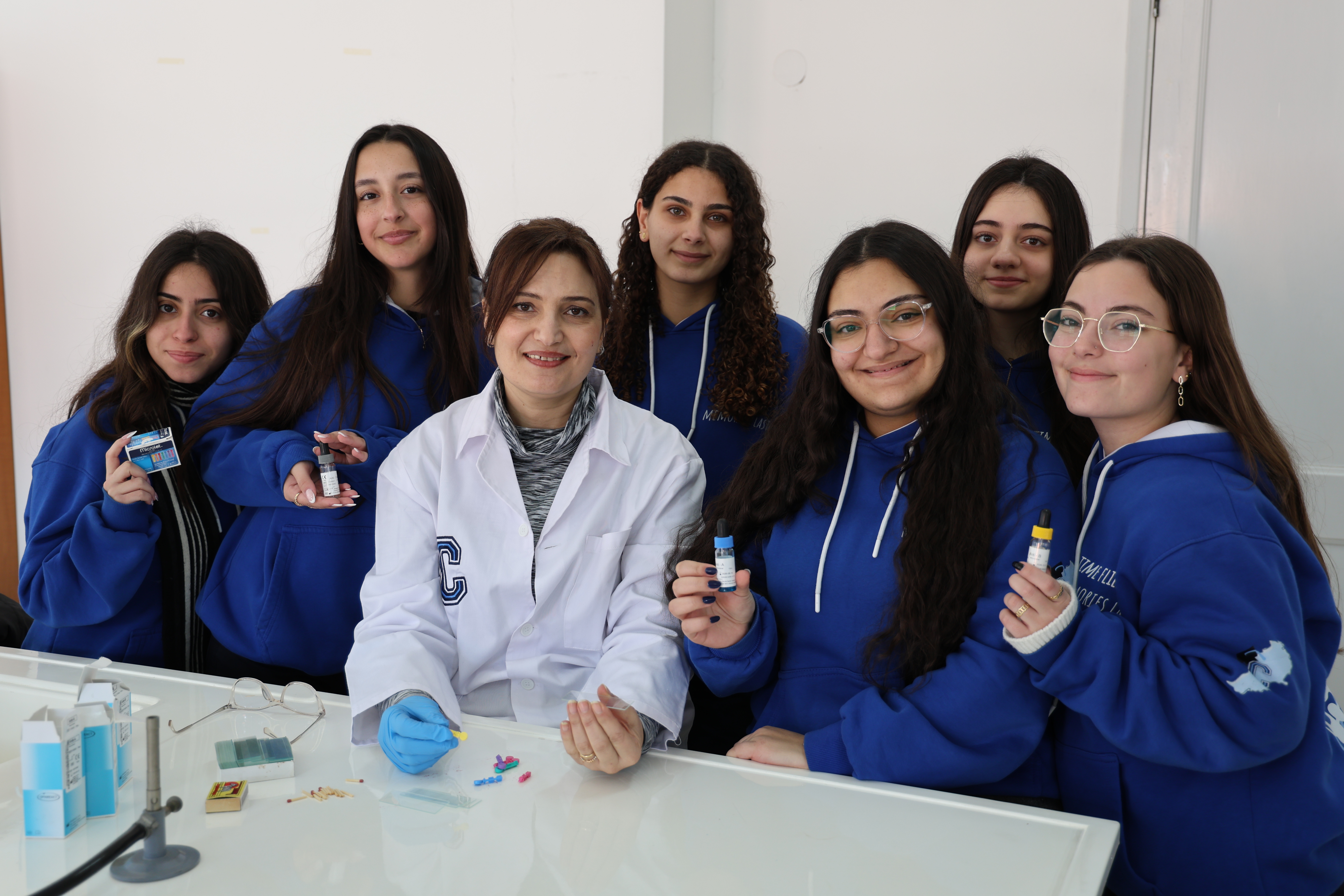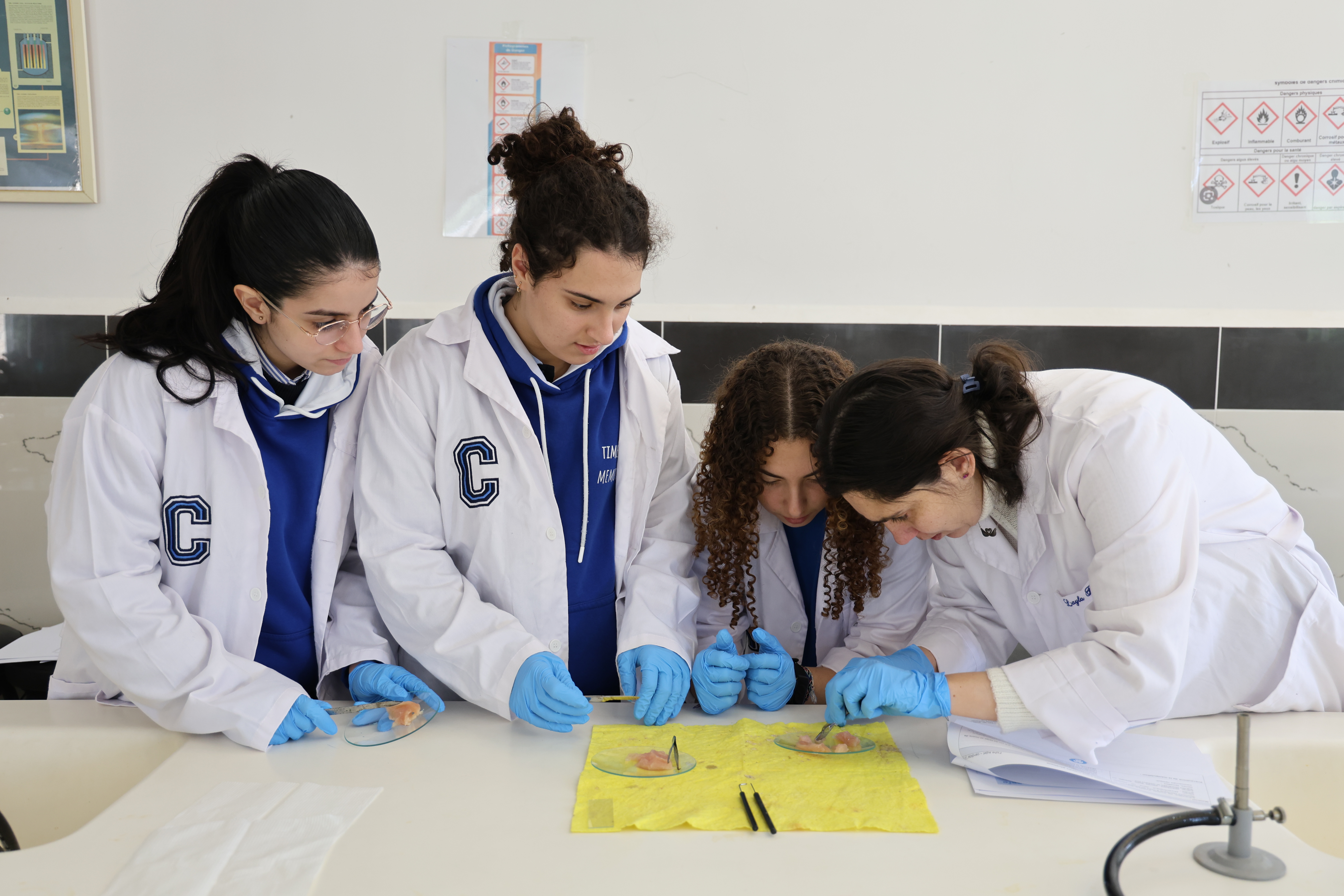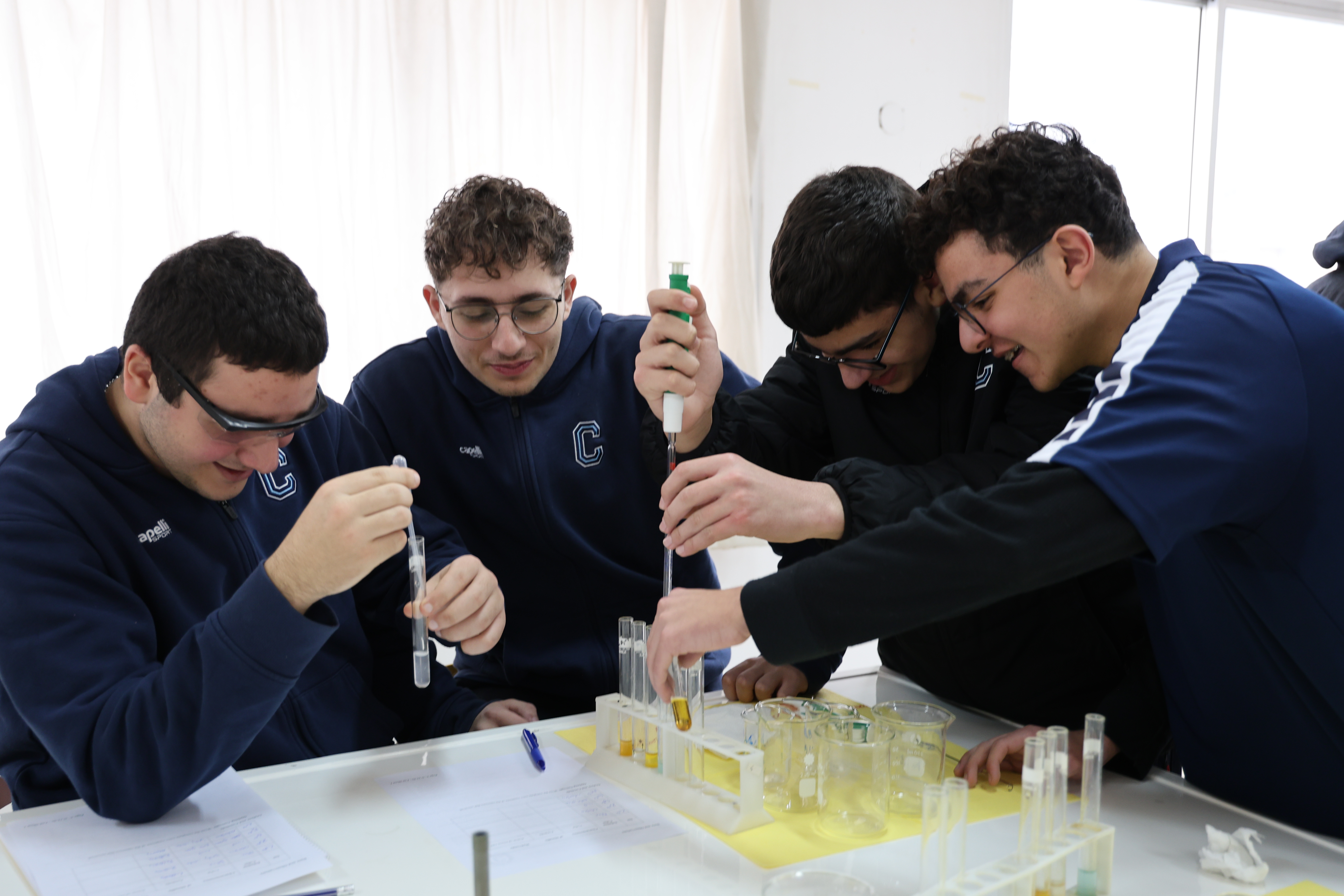

“School libraries are not luxuries—they are the foundations of our culture.” — Laurie Halse Anderson.
In alignment with this vision, Central College of the Lebanese Monks places great emphasis on the development, furnishing, and organization of its Center for Documentation and Information (CDI) and its libraries..

In addition to the CDI, CCJ houses three libraries that form perfect and stimulating reading, research, and learning environments for our pupils. Managed by professional librarians, our CDI and libraries include laptops for our students' use/multimedia resources, reading corners for students depending on age, magazines, and thousands of books of different types and genres (reference books, encyclopedias, fiction and nonfiction, scientific books, etc.) and in three languages- English, Arabic, and French.
Beyond the CDI, CCJ proudly hosts three distinct libraries, each designed to provide a vibrant and
stimulating environment for reading, research, and learning. Supervised by professional librarians,
these spaces are equipped with student-accessible laptops, multimedia resources, age-appropriate
reading corners, magazines, and thousands of books spanning various genres and disciplines—including
reference works, encyclopedias, fiction, nonfiction, and scientific texts—in three languages:
English, Arabic, and French.
Firmly believing in the transformative power of libraries, CCJ integrates dedicated reading
hours
and sessions into the school schedule to foster curiosity, motivation, and a lifelong love of
learning. These sessions also promote responsibility, critical thinking, and problem-solving skills.
The CDI and libraries remain open throughout the school day, welcoming students and teachers alike
to read or conduct research during recess and lunch breaks.
Students may borrow books for home reading over a period of two to three weeks, depending on the book type, with the expectation that all materials are returned in good condition by the due date set by the librarian. To ensure respectful and responsible use of these shared resources, library rules are clearly posted at the entrance of each facility and must be followed by all students.
At CCJ, our state-of-the-art scientific laboratories serve as a vital pillar of the educational experience, bridging the gap between theory and practice. Designed to transform abstract concepts into hands-on understanding, our facilities include two specialized biochemistry laboratories and three advanced physics laboratories—two traditional labs and one cutting-edge EXAO lab, equipped for computer-assisted experimentation.

Inaugurated in 2010, our one-of-a-kind Language Lab stands as a dynamic, audio-visual learning center designed to enrich language instruction through technology. Equipped with fifty student laptops networked to a central master computer, the lab enables teachers in Arabic, French and English to conduct a wide range of interactive activities and assessments—including listening and reading comprehension, SAT preparation, oral presentations, and video-based exercises followed by targeted evaluations. Teachers can monitor, manage, and guide student work in real time, ensuring a seamless and controlled learning experience. This innovative setup transforms language learning into an engaging, tech-integrated process—enhancing comprehension, communication, and performance across multiple language domains.


Our state-of-the-art scientific laboratories are a cornerstone of the CCJ educational experience, designed to transform theoretical knowledge into tangible understanding. We are equipped with two specialized biochemistry laboratories and three advanced physics laboratories, including two traditional labs and one cutting-edge EXAO (computer-assisted experimentation) lab.
These facilities empower our students to:
By engaging in this practical, inquiry-based learning, students not only acquire detailed knowledge but also develop a profound and lasting interest in the sciences.
At CCJ, the Department of Psychology provides essential support services designed to enhance student learning and well-being. These services help students overcome academic, social, behavioral, and personal challenges, ensuring that no learner is left behind. The goal is to address each child's unique needs through targeted interventions that foster growth, autonomy, emotional resilience, and psychological health.
The school psychologist works directly with students to:
The psychologist partners with families to:
To ensure a supportive classroom environment, the psychologist helps teachers:
The psychologist collaborates with school leadership to:
Social Welfare Office
In response to the current economic challenges, Central College of the Lebanese Monks has established a Social Welfare Office to support CCJ families facing financial hardship and tuition obligations.
For the Lebanese Maronite Order, education is not solely the transmission of knowledge—it is a mission rooted in forming virtuous citizens inspired by Christian values, committed to serving their communities and their nation. In keeping with this vision, the Financial Assistance Office was created to extend compassion and support to families in need.
The Social Bureau warmly welcomes all efforts and donations that contribute to sustaining this initiative, helping us provide aid to smaller families within our broader school community.
Families seeking financial assistance are kindly asked to follow these steps:
Each request undergoes a thorough review, including a home visit to better understand the family's circumstances. Based on this evaluation, tuition discounts are determined by the Father Superior in consultation with the Social Bureau Council.
We extend our heartfelt gratitude to all donors, especially those who choose to remain anonymous, for their generosity and commitment to our shared mission.